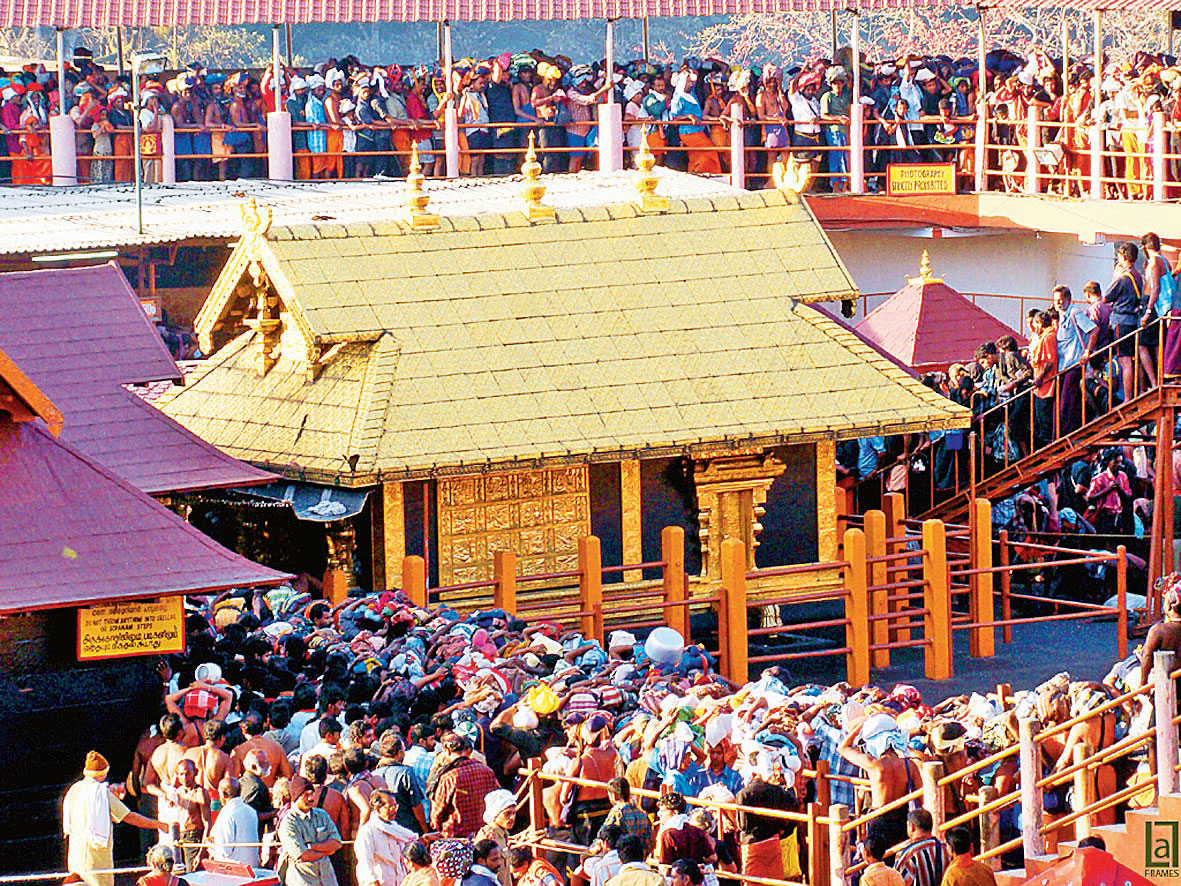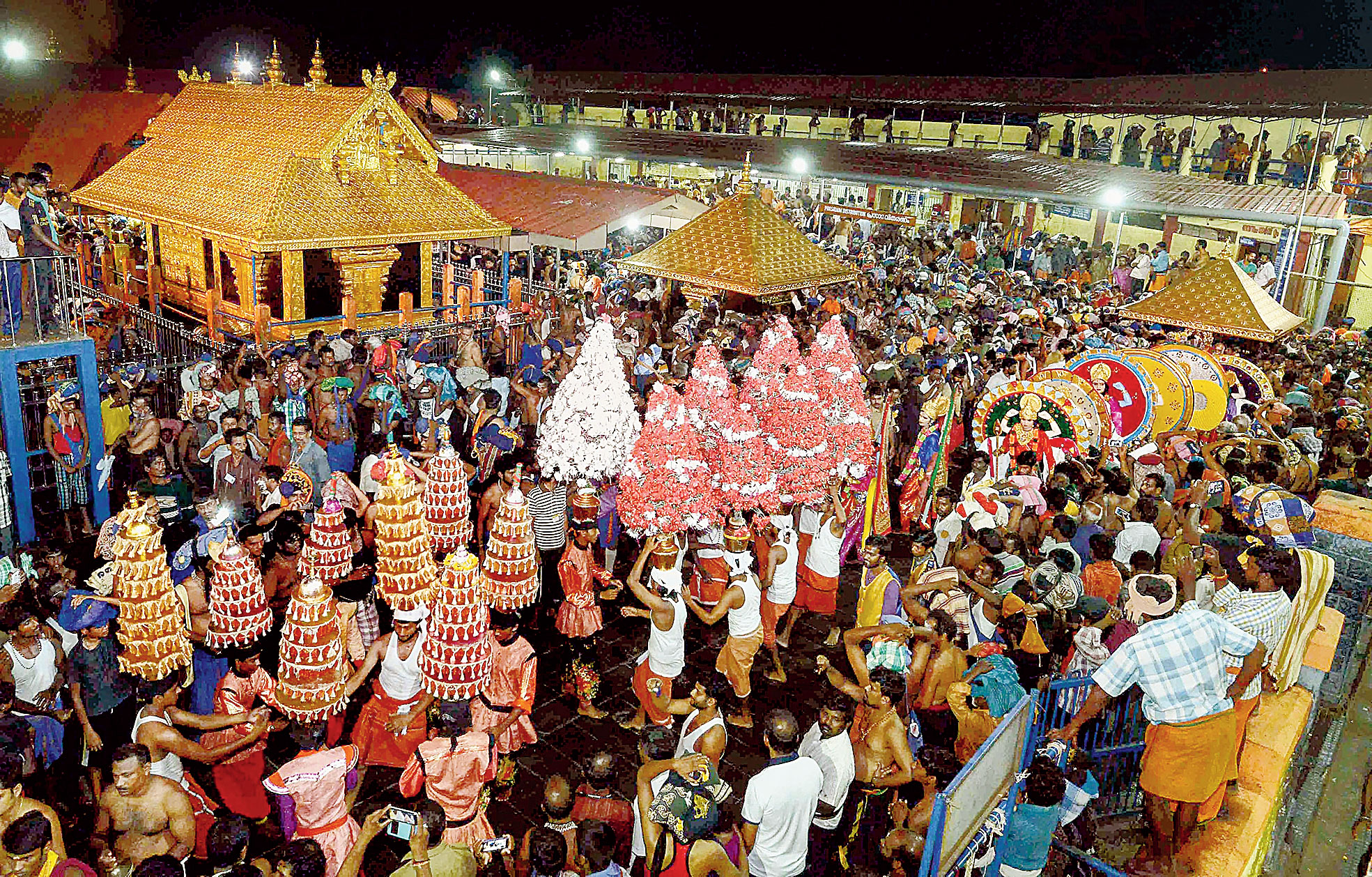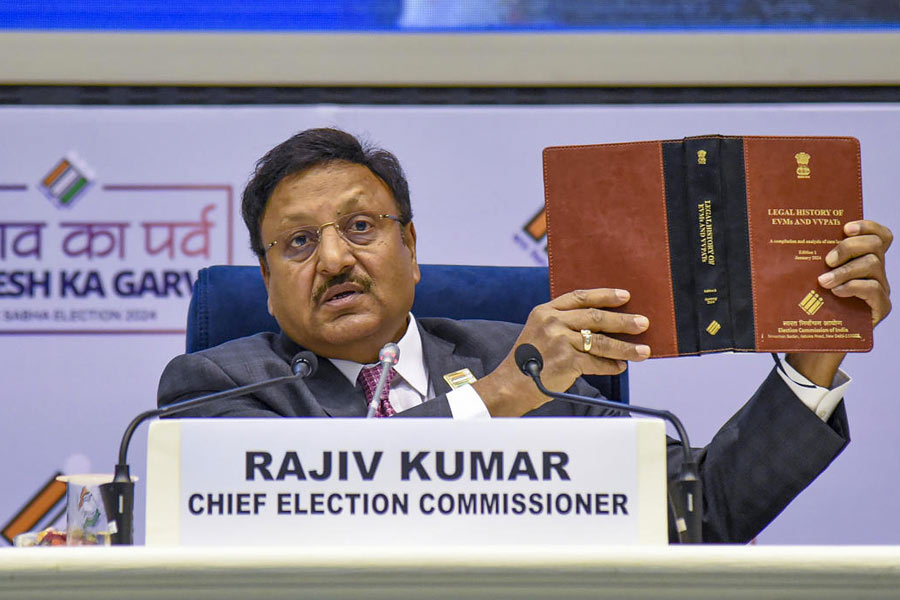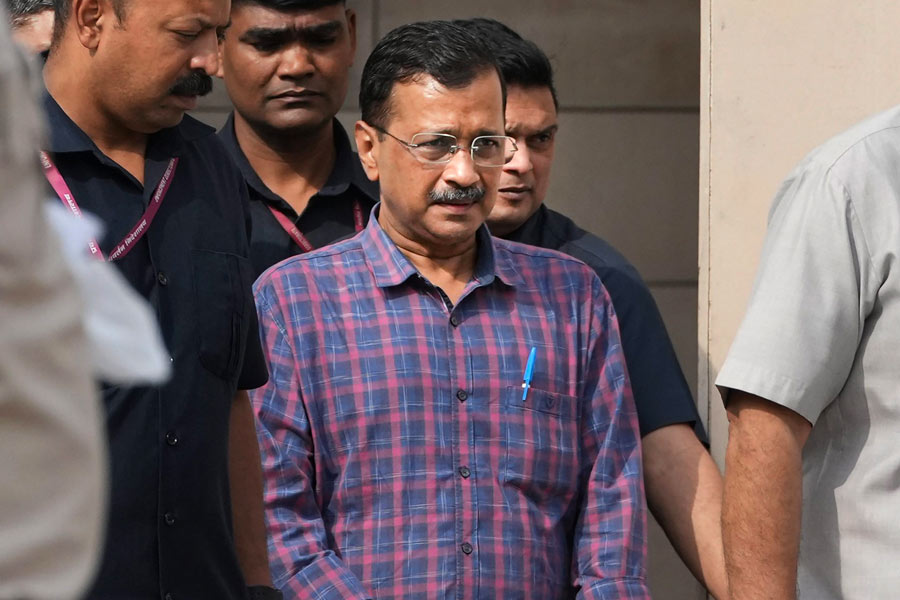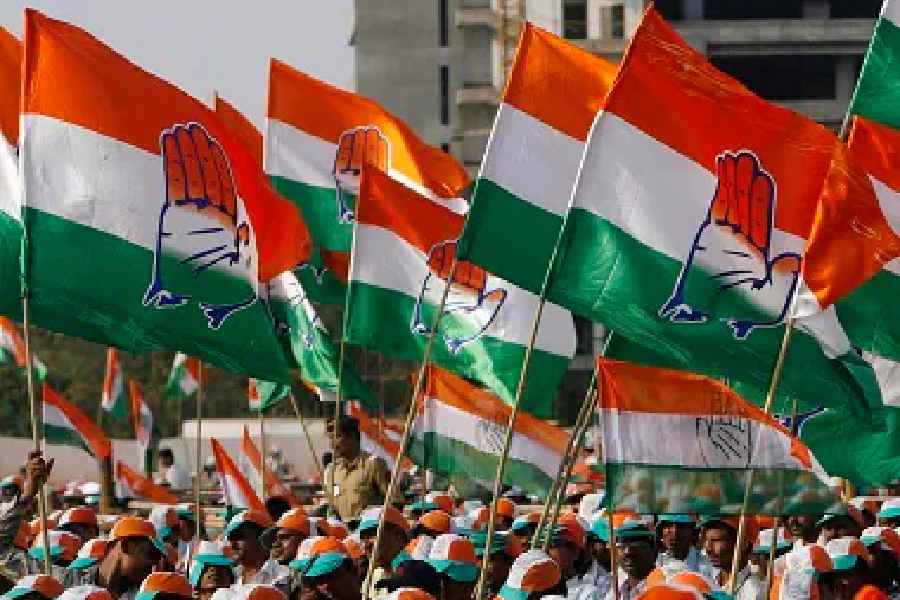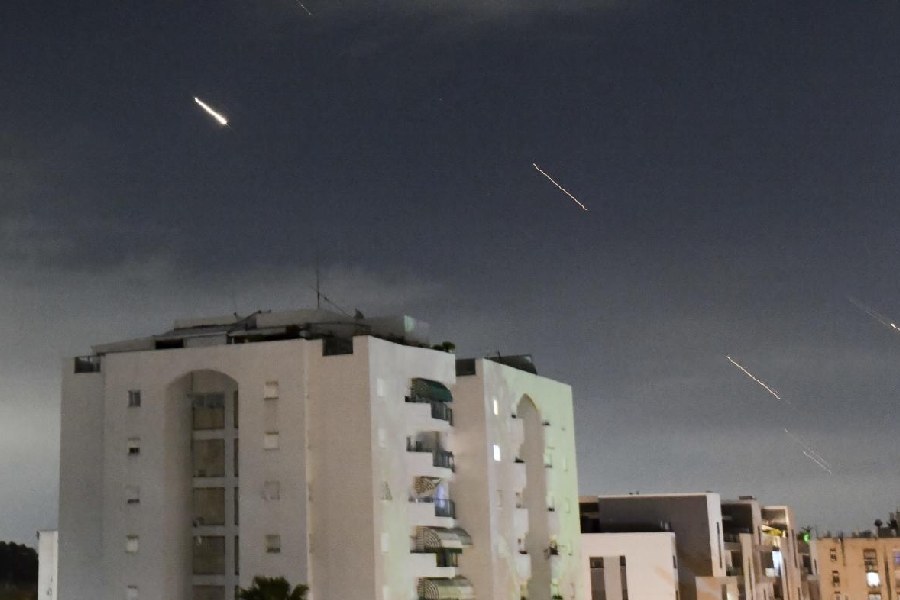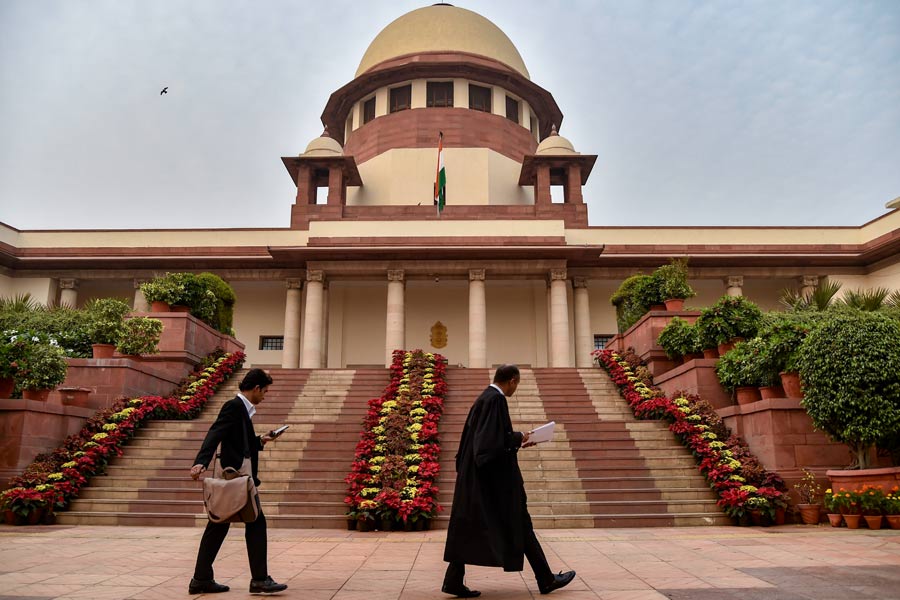The Supreme Court has agreed to review in open court on January 22 its Sabarimala verdict but declined to stay the order that lifted the ban on women of childbearing age from entering the Kerala temple.
Both sides drew hope from the court’s decision – those giving primacy to rituals clung to the uncommon permission to hold an open-court hearing while those keen on upholding the law pointed out that women of all ages are free to enter the temple at least till January 22.
But the decision poses a tough security challenge for the CPM-led Kerala government as the peak pilgrimage season on the Sabarimala hilltop that usually draws around 4 crore devotees over 64 days is scheduled to start on Friday. The 64-day window (with a break in between) ends on January 20, two days before the court meets again.
The state government, which has vowed to enforce whichever decision the court takes, has called an all-party meeting on Thursday. In the two brief phases that the temple has remained open after the court lifted the ban, protesters have not allowed a single woman aged between 10 and 50 to enter the temple.
On Tuesday, a five-judge bench of the Supreme Court had taken up review pleas in Chief Justice of India Ranjan Gogoi’s chambers.
“Applications for hearing the review petitions in open court are allowed. All the review petitions along with all pending applications will be heard in open court on 22nd January, 2019, before the appropriate bench,” an official order said later.
“We make it clear that there is no stay of the judgment and order of this court dated 28th September, 2018…,” the order added.
The decision to hear the 49 review pleas and four fresh applications in open court is significant. Review petitions, as a norm, are held inside the chambers of judges where they go only by written submissions from lawyers without the presence of advocates, litigants and the media.
In this case, however, most of the petitioners had sought an open-court hearing, which the bench of Justices Gogoi, R.F Nariman, A.M. Khanwilkar, D.Y. Chandrachud and Indu Malhotra conceded. In others words, detailed arguments can now be advanced in the open court that might have an impact on the judges’ thinking.
On September 28, another constitution bench had by a 4:1 majority judgment lifted the temple ban on women in the menstruating age group of 10 to 50, triggering widespread protests and dividing the political class.
Justice Dipak Misra, who was the CJI then, and Justices Nariman, Khanwilkar and Chandrachud had said such restrictions were unconstitutional and amounted to a form of untouchability.
Justice Indu Malhotra, the lone woman judge on the bench, had given a dissenting verdict, justifying the restriction as part of an “essential and integral part of the religion” in which courts could not interfere.
Some of the petitioners, including an association of devotees of Lord Ayyappa, have relied upon Justice Malhotra’s judgment while challenging the September verdict as an infringement on their right to practice their religion under Articles 25 and 26 of the Constitution.
Technically, only the same judges can hear review petitions. But as Justice Misra has retired, the composition of the five-judge bench will change with Chief Justice Gogoi being the new member on the bench.

